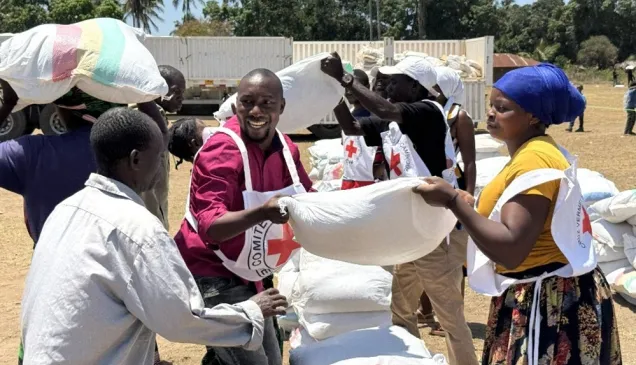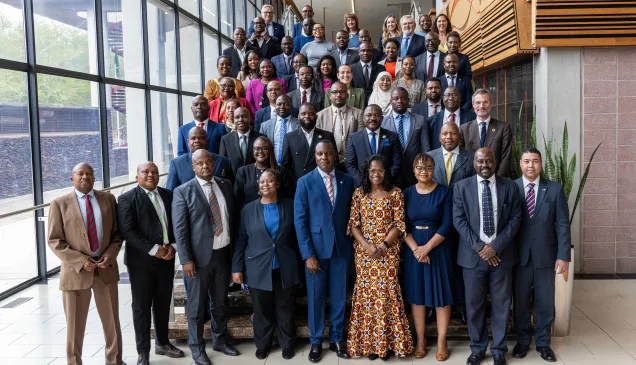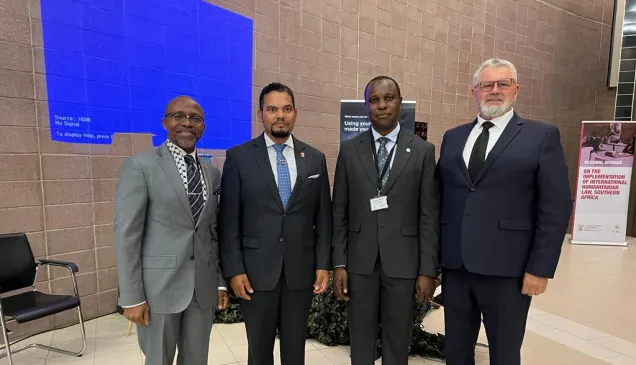Mozambique: More than 67,000 displaced people and residents now have a renovated health centre in Cabo Delgado
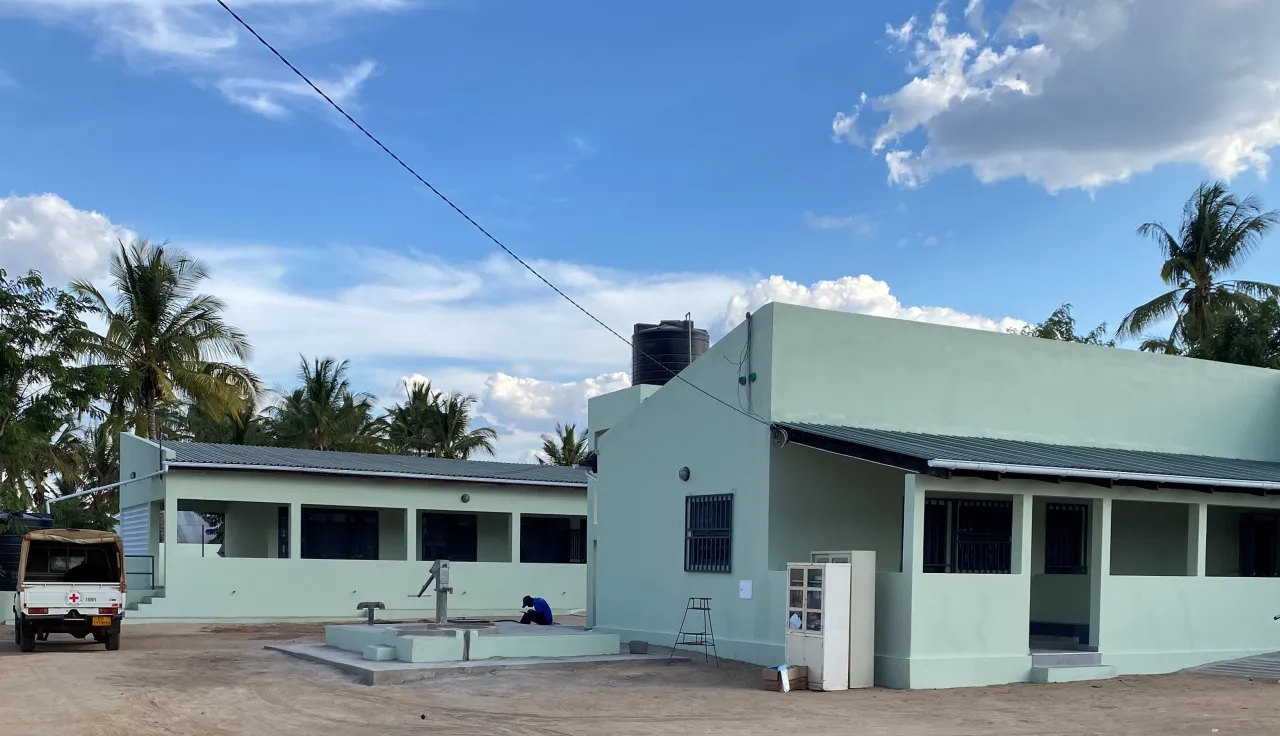
The armed conflict has limited communities' access to health care in Cabo Delgado, forcing families to walk long distances and then sit on the ground for a long time while waiting to be seen, while women have not had enough room for giving birth. To improve the service it provides for people, the International Committee of the Red Cross (ICRC) has remodelled and extended another medical care unit. The Mapupulo Health Centre in Montepuez, with the capacity to treat more than 67,000 displaced people and residents, was reinaugurated this month.
Together with their baby, who was born while the centre was being inaugurated, Rafael Crisanto and his family were looked after in the maternity ward. "Before, when we came for a consultation we used have to wait for ages, because they put us in with other kinds of consultations. Today I'm glad to know that my daughter was born in an upgraded unit." An average of 3,000 general consultations, 450 antenatal check-ups and 100 births take place every month in the health unit, where malaria is still the most prevalent disease treated.
The ICRC extended the infrastructure in the Mapupulo Health Centre by erecting a new outpatient building with eight offices, a laboratory and waiting areas. The previous building was remodelled and refurbished to house the maternity services. In addition, the ICRC has built a water supply system, and a veranda where people can wait and children and babies can be vaccinated. And it has fenced off the whole area, for the protection and security of both health professionals and their patients.
The scarcity of adequate health-care services is one of the most serious consequences of the violence in the northern Mozambican province of Cabo Delgado, impacting on Montepuez and other districts that now shelter a large number of internally displaced people.
Tomásia, a mother who has been displaced and has been attending this hospital since 2021, describes how conditions have improved there: the difference between before and after. "Thanks to the renovation, now we have some shade, and a proper place for weighing our babies. Before, we used to wait for our consultations out in the open", she says.
Extending and renovating health centres is one of the ICRC's priorities in Mozambique. The violence has not only destroyed centres, it has also greatly increased the demands made on those whose structures and services were already inadequate. Between 2021 and 2022 we expanded and renovated seven health centres in Pemba and Montepuez, and also Ibo Rural Hospital, supporting the province's health authorities.
"Conditions in general have got much better – for example, antenatal check-ups, births and postpartum consultations all used to happen in a very small building. There wasn't enough room, and there was no privacy for the consultations. On top of that, waiting times were very long", says Saara Parkkali, a representative of the ICRC's health team in Mozambique.
As a way of preventing illness and supplementing its health activities, the ICRC has carried out a major water-supply programme, building municipal infrastructure for the city of Montepuez and the displaced communities there. In addition, it continues to provide emergency assistance and sustainable programmes to benefit both displaced people and host communities.
More Information:
Mariana Camaroti, ICRC Maputo, mcamarotisilva@icrc.org, tel. +258 86 883 7981.
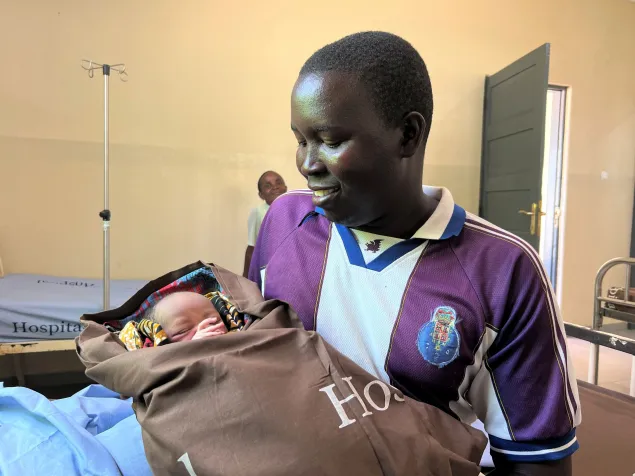
Rafael Crisanto and his baby, who was born during the inauguration of the maternity ward.
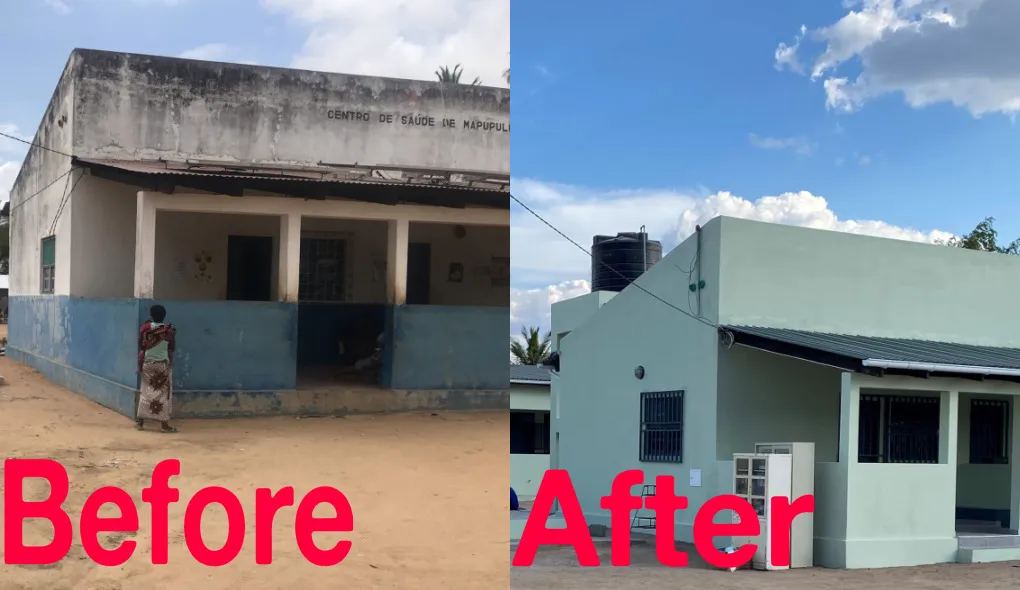
Montepuez health unit in Mozambique before and after the reform.

